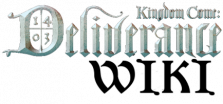The period up to the 13th century was characterized by Slavonic names, mostly of pagan origin. Common people would keep names short and simple like Odolen (the robust), Dobroš (the good), Chval (the praised). Names were also given according to place in society. Compound names such as Drahomíra (who values peace), Boleslav (more famed, more fabled) and Ludmila (dear to the people) were reserved for royalty and the nobility. Christian names were derived from Latin (Paul, Silvester, Florian), Hebrew (James, Daniel, John) and Greek (Andrew, Nicholas, Peter).
Once Christianity took over completely, only names belonging to Christian martyrs were permitted. In the towns and the countryside the prevailing names were John, Peter, Margaret, Catherine and Anna, while the nobility retained the privilege of using names like Sophia, Elizabeth, Jacob, Ulrich or Hermann. Additional bynames added information about the location of the family seat, social or religious standing, or about relationships with relatives, for example Diviš z Talmberka (in KCD Divish of Talmberg), Jan Ptáček z Pirkštejna (Hans Capon of Pirkstein), Hanuš z Pirkštejna, syn Jindřicha (Hanush of Pirkstein, son of Henry). In addition, sometimes an epithet would be used, for example Jan Zajíc (Hanekin Hare) of Valdek, Jan the Younger of Hradec etc.
The growing population and the limited number of first names gave rise to the surname as we know it today. The surname was derived from the place where the person lived (like in English, for example Hill, Woods, Forest), from their occupation (Coachman, Miller, Smith), from their physiognomy or appearance (Ruddy, Small, Brown), or were patronymics - derived from the father's forename (Davis, Littlejohn) or matronymics - derived from the mother's forename (Marriott, Beaton).
The period up to the 13th century was characterized by Slavonic names, mostly of pagan origin. Common people would keep names short and simple like Odolen (the robust), Dobroš (the good), Chval (the praised). Names were also given according to place in society. Compound names such as Drahomíra (who values peace), Boleslav (more famed, more fabled) and Ludmila (dear to the people) were reserved for royalty and the nobility. Christian names were derived from Latin (Paul, Silvester, Florian), Hebrew (James, Daniel, John) and Greek (Andrew, Nicholas, Peter).
Once Christianity took over completely, only names belonging to Christian martyrs were permitted. In the towns and the countryside the prevailing names were John, Peter, Margaret, Catherine and Anna, while the nobility retained the privilege of using names like Sophia, Elizabeth, Jacob, Ulrich or Hermann. Additional bynames added information about the location of the family seat, social or religious standing, or about relationships with relatives, for example Diviš z Talmberka (in KCD Divish of Talmberg), Jan Ptáček z Pirkštejna (Hans Capon of Pirkstein), Hanuš z Pirkštejna, syn Jindřicha (Hanush of Pirkstein, son of Henry). In addition, sometimes an epithet would be used, for example Jan Zajíc (Hanekin Hare) of Valdek, Jan the Younger of Hradec etc.
The growing population and the limited number of first names gave rise to the surname as we know it today. The surname was derived from the place where the person lived (like in English, for example Hill, Woods, Forest), from their occupation (Coachman, Miller, Smith), from their physiognomy or appearance (Ruddy, Small, Brown), or were patronymics - derived from the father's forename (Davis, Littlejohn) or matronymics - derived from the mother's forename (Marriott, Beaton).
